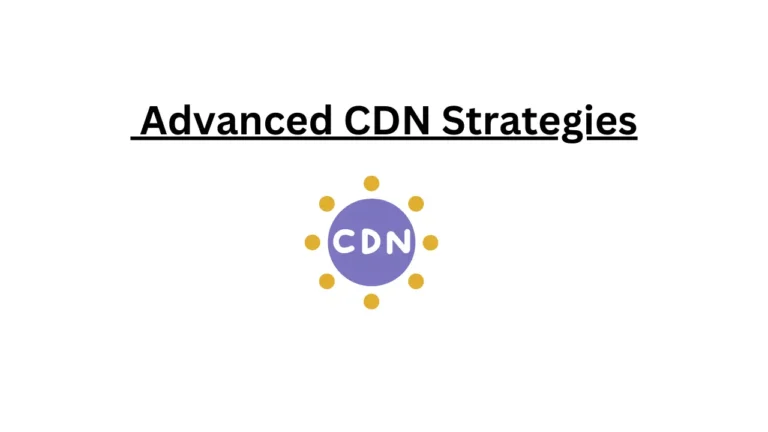Introduction
In the digital age, the choice of a hosting service for your website is crucial for its performance, security, and reliability. As you embark on this journey, understanding the differences between self-hosting vs. managed hosting service is essential. This decision can impact various aspects of your online presence, from user experience to technical upkeep, and ultimately, your business’s success. Whether you are running a personal blog, an e-commerce site, or a corporate webpage, the type of hosting service you opt for will play a pivotal role in determining your site’s operational efficiency and cost-effectiveness.

Self-hosting allows you to have full control over your server and its configurations. It requires a more hands-on approach and a certain level of technical expertise. On the other hand, a managed hosting service provides professional management of your server, including updates, backups, and security measures, hence it’s often seen as a more hassle-free option. This introductory comparison of self-hosting vs. managed hosting service aims at equipping you with the basic knowledge to discern which option aligns best with your needs, technical skills, and budget.
In the sections that follow, we will delve deeper into the various facets of these two hosting solutions, evaluating their pros and cons. This will enable you to make a well-informed decision, tailored to your specific requirements. Understanding the nuances and implications of these hosting options will empower you to ensure that your website runs smoothly and efficiently, providing a seamless experience for your visitors.
What is Self-Hosting?
Self-hosting refers to the practice of owning and managing your own server to support the hosting needs of a website or application. This setup necessitates the procurement and maintenance of physical hardware, such as servers, as well as the installation and continual updating of software, including server operating systems and web server software. Additionally, individuals opting for self-hosting must possess a certain level of technical expertise to configure, secure, and troubleshoot the hosting environment effectively.
The primary advantage of self-hosting lies in the high degree of flexibility and control it affords. Users are able to customize their hosting environment to meet specific needs, free from the constraints typically imposed by managed hosting services. This customization can extend to the selection of operating systems, the optimization of server performance, and the implementation of security measures tailored to the application’s requirements.
However, this increased control comes with a corresponding increase in responsibility. Self-hosting demands significant time and effort to ensure the hardware and software are functioning optimally. Routine tasks such as system updates, backups, and security protocols must be diligently performed. Additionally, troubleshooting issues, optimizing website performance, and ensuring uptime are essential responsibilities that fall on the user, requiring a breadth of technical knowledge and skills.
Moreover, self-hosting can incur higher startup costs due to the acquisition of physical hardware and possibly specialized software licenses. Ongoing operational costs, such as electricity and internet bandwidth, should also be considered. For individuals or businesses with the technical capabilities and resources to manage a self-hosted environment, it can offer unparalleled control and customization options. However, for those without these resources, the complexity and potential costs could outweigh the benefits.“`html
What is Managed Hosting?
Managed hosting is a service whereby a third-party provider administers and maintains the technical infrastructure of a website or application on behalf of the owner. Unlike self-hosting, where the individual or organization must handle all technical aspects, managed hosting provides a more hands-off approach. This service typically includes comprehensive support for security, updates, backups, and performance monitoring.
With managed hosting, the hosting provider takes responsibility for routine security measures, such as firewall installations, malware scanning, and regular security patches. This ensures the website remains protected against potential cyber threats without the website owner needing to possess specialized security knowledge. Additionally, software updates are automatically handled, preventing compatibility issues and improving the overall reliability of the website.
Backups form a crucial part of managed hosting services. Providers often conduct regular backups of website data, ensuring that in the event of data loss or corruption, a recent copy of the site can be restored with minimal downtime. This aspect of managed hosting significantly reduces the risk associated with data losses, making it a valuable feature for those less inclined towards technical details.
Managed hosting services also encompass technical support, which can be particularly beneficial for users lacking in-depth technical expertise. Support teams are available to resolve technical issues and provide guidance, which can save website owners significant time and effort and allow them to focus on the core activities of their business.
This suite of services makes managed hosting an attractive option for individuals and businesses preferring not to engage with the technicalities of website maintenance. It offers a simplified, robust approach to hosting, ideal for those looking to offload the complexities of server management onto capable, professional hands.“`
Pros of Self-Hosting
Deciding to self-host your website can provide several significant benefits. Below are some of the most notable advantages:
Total Control Over the Server
Self-hosting provides you with absolute control over your server environment. This means you have full access to all server settings and configurations, enabling you to optimize performance and make changes as you see fit. This level of control is particularly beneficial for those with specialized needs that can’t be met by managed hosting services.
Complete Customization
When you self-host, you have the freedom to customize every aspect of your server and website. This includes selecting your preferred operating system, software, and hardware components. Such flexibility is invaluable for businesses that need to integrate unique features or systems that are not supported by managed hosting providers.
Potentially Lower Long-term Costs
While the initial setup and maintenance of a self-hosted server can be costly, it often results in lower long-term expenses. Managed hosting services typically come with ongoing fees, which can add up over time. By contrast, self-hosting allows you to invest in your own infrastructure, potentially leading to significant savings in the long run.
Enhanced Security
With self-hosting, you have complete control over your security measures. This means you are not reliant on third-party providers, which can reduce vulnerabilities and exposure to potential security breaches. Implementing your own security protocols allows for a more tailored approach to protecting sensitive data, thus offering an additional layer of security.
Overall, self-hosting provides a high degree of control, customization, cost-effectiveness, and security, making it an attractive option for those with the technical expertise and resources to manage their own server.
Cons of Self-Hosting
While self-hosting offers a range of benefits, it is accompanied by several notable disadvantages that must be carefully considered. A detailed examination of these downsides will provide a balanced perspective on this hosting model.
1. High Upfront Costs: One of the most significant drawbacks of self-hosting is the substantial initial investment required. This includes the purchase of hardware, software, and other necessary infrastructure. Additionally, the costs extend to power, cooling systems, and possibly dedicated space for the server setup. These expenses can be prohibitively high, particularly for small businesses or individual users.
2. Significant Technical Expertise Required: Operating a self-hosted environment demands extensive technical knowledge across various domains, including server configuration, network management, and troubleshooting. This expertise is essential for setting up and maintaining a reliable and efficient system. Without this skill set, users may find the process overwhelming and may either need to invest in training or hire qualified personnel.
3. Time-Consuming Maintenance: Maintaining a self-hosted environment is a continuous effort that can consume a significant amount of time. Regular tasks include software updates, backups, monitoring performance, and addressing any technical issues that arise. This can detract from focusing on core business activities and may require dedicated personnel to handle these responsibilities effectively.
4. Responsibility for Security: Security is a paramount concern in self-hosting. The onus of implementing and maintaining robust security measures, such as firewalls, encryption, and intrusion detection systems, lies entirely with the user. This also includes staying abreast of the latest security threats and ensuring that all systems are adequately protected. The potential risks associated with failing to secure a self-hosted environment can have severe consequences, including data breaches and loss of sensitive information.
Understanding these cons is crucial for anyone considering self-hosting as it involves a significant commitment of resources and responsibilities.
Pros of Managed Hosting
Managed hosting presents numerous advantages, making it an appealing choice for many businesses and individuals. Below are some of the key benefits:
Ease of Use: Managed hosting services are designed to simplify the process of running a website. With a managed host, users can navigate backend services without needing advanced technical skills. This ensures that even those without IT backgrounds can manage their online presence effectively.
Time-Saving: One of the most significant benefits is the time-saving aspect. Managed hosting providers handle routine maintenance tasks, which can be quite time-consuming if managed independently. This includes software updates, server monitoring, and performance optimizations, allowing businesses to focus on their core operations.
Professional Support: Managed hosting services offer expert support, typically available 24/7. This professional assistance ensures that any technical issues are promptly addressed, reducing downtime and maintaining website functionality. Having experienced technicians at hand provides peace of mind for site owners.
Automated Updates and Backups: Regular updates and backups are critical for the smooth operation of a website. Managed hosting providers automatically perform these tasks, ensuring that the site remains secure and that data is consistently backed up. This automation reduces the risk of data loss and improves overall site reliability.
Enhanced Security: Security is a significant concern for any online presence. Managed hosting providers implement robust security measures, including malware scanning, firewalls, and DDoS protection. These services often include proactive security monitoring and updates to protect against the latest threats, offering a higher level of security than typically achievable through self-hosting.
In summary, managed hosting services provide a comprehensive solution that simplifies website management, saves time, ensures professional support, automates essential updates and backups, and enhances security. These benefits make managed hosting an attractive option for those seeking a more hands-off, secure, and reliable hosting experience.
Cons of Managed Hosting
While managed hosting offers several advantages, it is crucial to consider its potential disadvantages to make an informed decision. Below are some of the notable cons associated with opting for managed hosting services:
Higher Recurring Costs: One of the most significant downsides is the higher recurring costs. Unlike self-hosting, where initial setup costs might be more substantial, managed hosting typically involves monthly or yearly fees. These costs include maintenance, support, and other services provided by the hosting company, making it more expensive over time.
Less Control Over Server Settings: Managed hosting limits direct control over server settings. While this can be beneficial for those lacking technical expertise, it might frustrate more technically adept users who prefer adjusting configurations to meet specific needs. Hosting providers often impose restrictions to ensure server stability and security, but this can hinder advanced customization.
Potential Limitations on Customization: Managed hosting services may have limitations on the customization of server environments and software. Hosting providers often use standardized configurations to streamline their management processes, which means specific software or versions might not be available. This can be a drawback for businesses with unique or particular requirements.
Reliance on Hosting Provider for Security: Users of managed hosting rely heavily on their provider for security measures. While this can be advantageous for those without a dedicated IT team, it means trusting that all security protocols are up-to-date and effectively implemented. Any lapse on the provider’s part could potentially expose hosted websites to vulnerabilities.
Understanding these disadvantages can help users discern whether the higher costs, reduced control, and customization limitations align with their specific needs and expectations from a hosting service. Consequently, careful consideration is imperative when choosing between self-hosting and managed hosting services.“`html
Key Takeaways and Conclusion
When comparing self-hosting and managed hosting services, several distinct advantages and disadvantages emerge for each. Self-hosting provides unmatched control, customization, and potentially lower long-term costs. However, it demands significant technical expertise, time for configuration and maintenance, and potential for higher upfront costs. Conversely, managed hosting services offer a hands-off approach, with experts handling infrastructure management, updates, and security. This convenience comes with a higher recurring cost and sometimes less flexibility.
In evaluating which hosting option suits you best, consider your unique requirements. If you possess strong technical skills, seek complete control over your server environment, and are prepared to invest time in management, self-hosting could be the preferable choice. On the other hand, if you prioritize ease of use, reliability, and prompt support over granular control and lower costs, managed hosting will likely serve you better.
It’s crucial to weigh these factors in the context of your website’s current and future needs. A thorough assessment will help ensure that you choose a solution that aligns well with your goals and resources. Ultimately, the decision hinges on balancing the need for control versus the convenience that managed services offer.
We encourage you to reflect on your specific needs and technical capabilities as you make this important decision. For more detailed insights into hosting solutions and assistance in determining the best option for your situation, explore our comprehensive guides and resources on this topic.“`
FAQs
1. What are the key differences between self-hosting and managed hosting?
Self-hosting involves individuals or businesses setting up, maintaining, and managing their own servers, which offers greater control and customizability. Managed hosting, on the other hand, is outsourced to a hosting provider who takes care of server management, maintenance, and support, allowing users to focus on their primary activities.
2. Which is more secure: self-hosting or managed hosting?
The security of self-hosting largely depends on the expertise of the individuals managing the servers. Managed hosting providers typically offer enhanced security measures, such as regular updates, monitoring, and advanced protection against cyber threats, making managed hosting generally more secure.
3. How do the costs compare between self-hosting and managed hosting?
While self-hosting may initially appear less expensive, considering you only pay for hardware and basic utilities, the cumulative costs of software, security, and time investment can be significant. Managed hosting often comes at a higher upfront cost, but it includes comprehensive services, support, and maintenance, potentially making it more cost-effective in the long run.
4. Is managed hosting better for beginners?
Yes, managed hosting is usually better for beginners, as it requires minimal technical knowledge. The hosting provider handles server-related tasks, troubleshooting, and maintenance, enabling beginners to concentrate on building and managing their websites or applications without worrying about technical complexities.
5. Can I switch from self-hosting to managed hosting later on?
Yes, it is possible to switch from self-hosting to managed hosting. However, the process can be complex and may involve data migration, potential downtime, and reconfiguration of certain settings. Planning and consulting with both current and prospective hosting providers can facilitate a smoother transition.

